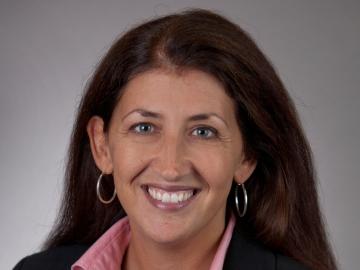
Section Branding
Header Content
Memorial Turns Around Finances
Primary Content

While health care remains a hot topic in national politics, many of Georgia's hospitals are just struggling to keep a positive cash flow.
Officials at one Georgia health care system recently turned around their money-losing bottom-line.
Memorial Health University Medical Center isn't just Savannah's big hospital.
It's also where the region's most severe trauma cases go, a major employer on the coast with thousands of workers and the emergency room of last resort for the area's uninsured.
When CEO Maggie Gill took charge in January of last year, the local health care giant was deep in red ink.
She knew something had to change.
"We have a strong clinical platform to build on. So we didn't have to fix anything when it came to patient care. What we had to fix was our business practices," Gill says. "And we've done a lot of work behind the scenes to fix the business practices that, quite frankly, weren't that strong at Memorial."
After six years of losing money, Memorial this year posted a profit.
It was a slim one. But it let hospital officials raise salaries for the first time in four years.
And it was a welcome change in an industry reforming very quickly.
"We know that health care in this country, no matter who is elected, is going to change and it needs to change because it is a very cumbersome and costly system," Gill says. "And so our job as a leader in healthcare is to change."
Gill says Memorial got better at contracting and collecting -- the kind of back-of-the-house financial clean up that isn't sexy, but does pay bills.
Gill says the hospital also focused on improving relations with doctors, some of whom had been threatening to leave overpay and management issues.
"We really went back to the basics," Gill says. "We're here to provide care for patients, physicians are the ones who care for patients, how we integrate their vision for care with the resources we can provide and the skills we can provide with our staff."
Memorial cancer surgeon Guy Petruzzelli says improving doctor-hospital relations reduces errors and complications, propping up the bottom line.
"I think it's very clear that when you talk about the viability of a healthcare system, the viability of a hospital, it really requires close alignment between the physicians and the hospital in terms of providing excellent patient care."
But the biggest change of all is yet to come.
Gill recently announced Memorial is forging a 10-year collaboration with Novant Health.
The North Carolina based non-profit partners with 13 hospitals in four states.
The relationship could give Memorial Health more power in negotiating purchases and payments.
Georgia Hospital Association spokesman Kevin Bloye says it's a strategy other Georgia hospitals -- both urban and rural -- are embracing as rising costs stretch their bottom lines.
"I think we're reaching a point where many hospitals are realizing that when they look in the future it's going to be a lot easier for them to survive working with a larger health care system than it would be if they were just autonomous," Bloye says.
Hospitals in Tifton, Macon, Atlanta and Augusta recently have signed partnership agreements with other health care systems.
Tags: health, health care reform, Georgia Hospital Association, Kevin Bloye, GPBnews, orlando montoya, Memorial Health University Medical Center, Maggie Gill, Guy Petruzzelli, Novant Health
